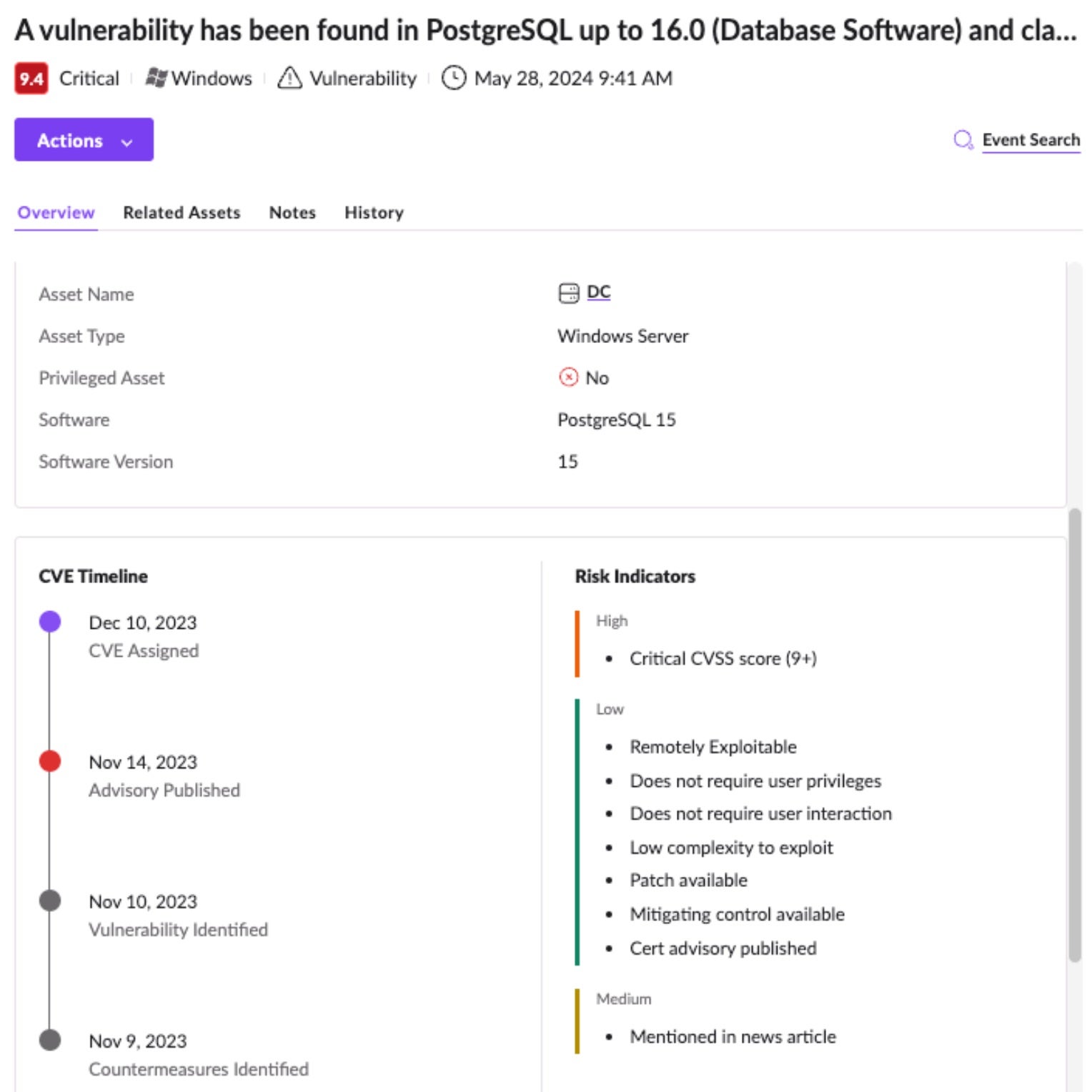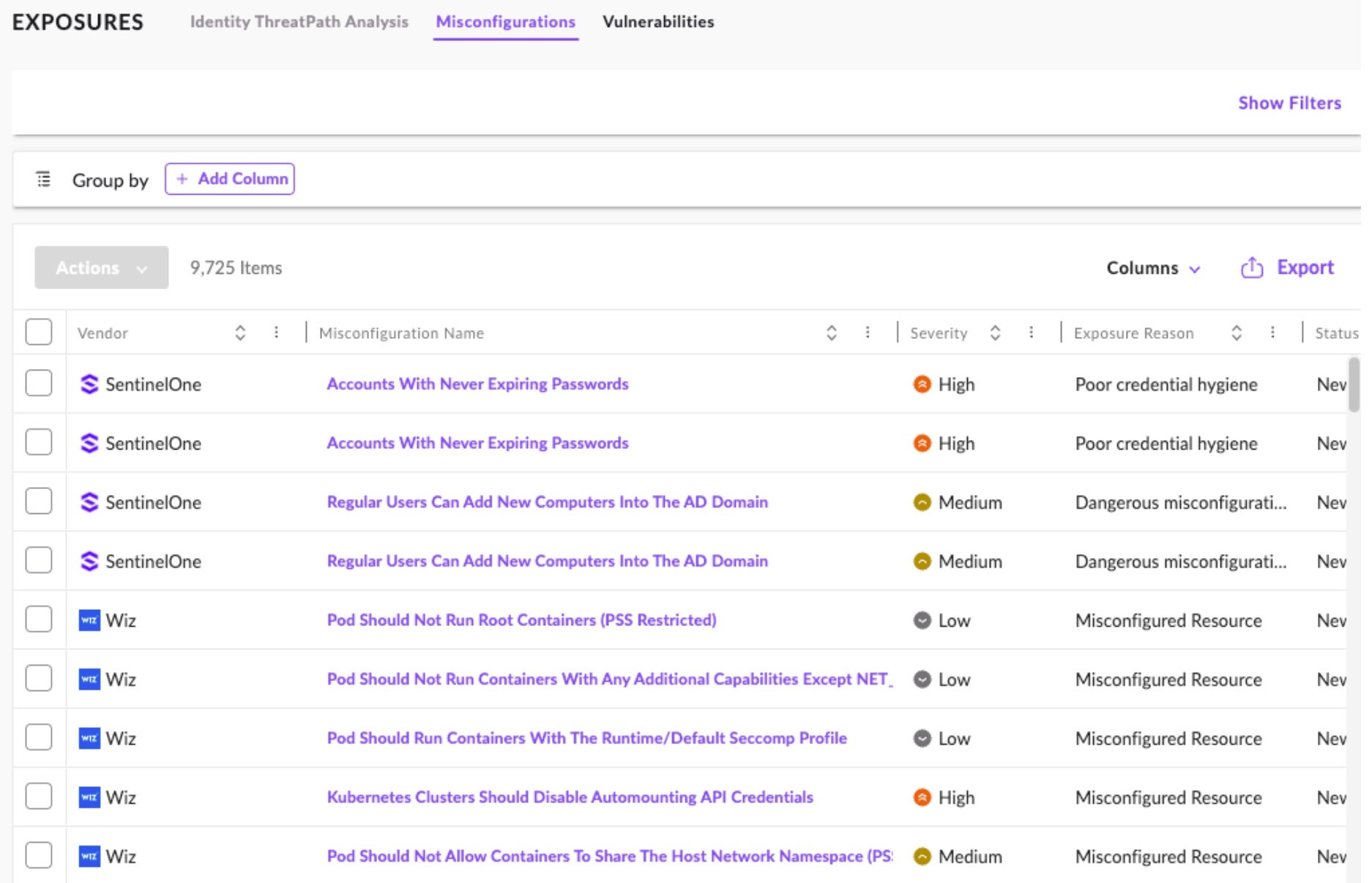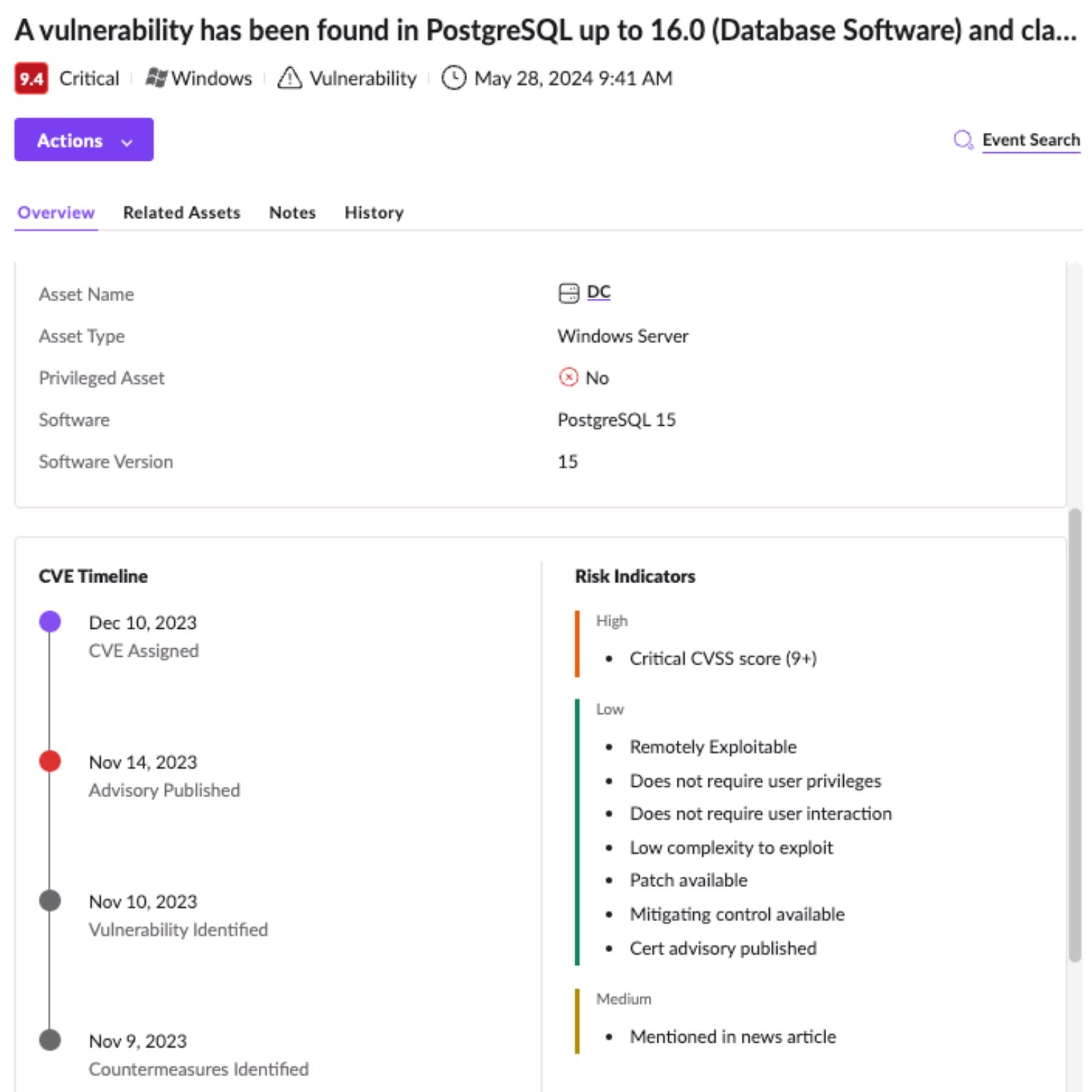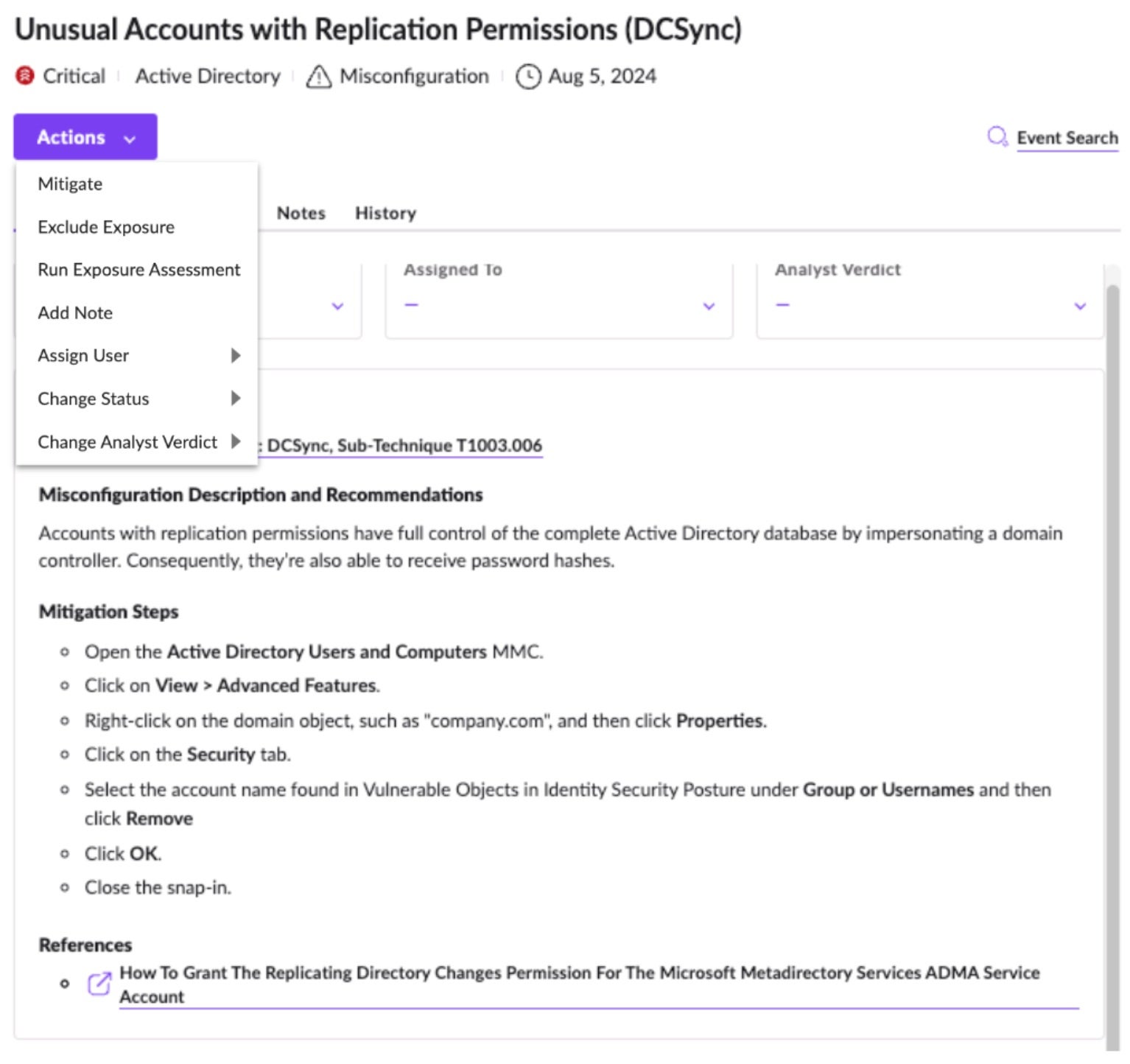
2024-8-13 21:0:38 Author: www.sentinelone.com(查看原文) 阅读量:9 收藏
As part of ongoing growth and digital transformation, many enterprises encounter the challenge of managing the exposures that come with integrating managed assets, BYOD policies, cloud resources, shadow IT, and IoT devices. Each of these new technologies introduces their own set of vulnerabilities and potential entry points for malicious actors, adding to the complexity of maintaining a robust security posture.
In this kind of fragmented environment, security teams have a harder time gaining a comprehensive view of their security landscape, which can lead to exploitable blind spots. The dynamic nature of these technologies requires constant monitoring and adaptation to ensure that security measures remain effective.
This blog post introduces SentinelOne’s new Extended Security Posture Management (xSPM), directly integrated into the AI-powered Singularity Platform. Offering organizations a proactive approach to streamlining risk management, reducing alert fatigue, and accelerating remediation workflows, xSPM is set to help security teams fortify their security posture against new and evolving threats.

The Widening Gap Between Vulnerability Discovery & Remediation
Exacerbating these security challenges is the increasing volume of vulnerabilities and cases of misconfigurations. According to Gartner, by 2025 99% of cloud breaches will stem from preventable misconfiguration or user mistakes. Additionally, the National Vulnerability Database details 260,000 known vulnerabilities with more than 24,000 new CVEs identified this year alone. The gap between the discovery of vulnerabilities and the ability of security teams to remediate them is widening, as evidenced by a recent survey where 82% of security professionals acknowledged this disparity.
The time window between the publication of proof-of-concept exploits and their weaponization is also rapidly decreasing, with a recent Cloudflare report citing 22 minutes from zero-day publication to active exploitation. This urgency underscores the critical need for security teams to prioritize vulnerabilities and misconfiguration effectively and remediate risks promptly to prevent potential breaches.
Beyond Detection | How xSPM Complements XDR for Comprehensive Threat Management
The lack of visibility into both pre and post-breach issues across multiple siloed security products slows down triage and remediation, increasing the complexity and cost of protecting IT environments. Extended Security Posture Management (xSPM) is an innovative approach designed to harden an organization’s security posture through continuous monitoring, assessment, and remediation of vulnerabilities and misconfigurations across the enterprise. By providing a holistic view of the pre-compromise security landscape, xSPM allows security teams to proactively identify and address potential threats before they can be exploited.
Incorporating xSPM into security architecture involves integrating various security tools like vulnerability management, identity posture management, application security posture management (ASPM), cloud security posture management (CSPM), and any tool that generates vulnerabilities or misconfigurations to a centralized management plane.
This approach is particularly powerful when combined with Extended Detection and Response (XDR). While XDR specializes in detecting, investigating, and responding to threats across multiple security layers, xSPM focuses on preemptively optimizing the security posture to mitigate risks and prevent breaches. By integrating xSPM with XDR, organizations can effectively manage the entire threat lifecycle, transforming a reactive security posture into a proactive defense strategy that enhances the ability to prevent breaches and ensures a robust incident response and recovery mechanism.
Introducing SentinelOne’s Extended Security Posture Management (xSPM)
Enter SentinelOne’s Extended Security Posture Management (xSPM), now part of the AI-powered Singularity Platform. xSPM delivers proactive posture management with real-time insights into vulnerabilities and misconfigurations. Enhancing exposure management, xSPM helps security teams optimize their risk reduction workflows and provides comprehensive visibility by consolidating and prioritizing security findings from both SentinelOne and third-party solutions. Intelligent prioritization ensures security teams can address the most critical exposures first and create a strong security posture against potential threats.
Visibility
xSPM provides centralized visibility and simplified management by delivering enterprise-wide control across cloud, endpoint, identity, and third-party risk. By aggregating vulnerabilities, cloud misconfigurations, host audits, and web application findings into a unified management system, xSPM offers a streamlined, single-pane view of an organization’s security posture. Security teams are able to be proactive in building up their cyber resilience with xSPM, which allows them to identify and address exposures before they can escalate into full-blown threats.
The integration of xSPM’s capabilities also incorporates insights from third-party risk sources, like Snyk and Wiz, for expanded visibility across the security stack.

Context
xSPM provides contextual assessment and prioritization so that security teams are equipped with intelligent scoring to prioritize risks effectively. The contextual risk score integrates CVSS severity, exploitability, asset importance, and exposure, to ensure vulnerabilities are accurately prioritized. Continuous insights offer real-time intelligence and analysis, enabling teams to triage exposures efficiently. Since the platform is focused on business context, it means that remediation efforts are closely aligned with the assets most critical to the organization, ensuring high-value resources are prioritized for remediation. xSPM scoring helps reduce alert fatigue by filtering out noise allowing security teams to concentrate on addressing the most pressing threats.

Remediation
Security teams can leverage xSPM to enhance their organization’s security posture with accelerated risk remediation and decision-making capabilities. By offering integrated remediation guidance tailored for misconfigurations and vulnerabilities, xSPM ensures that teams have the precise, actionable insights they need to address threats effectively. With the power of native remediation for Active Directory (AD) misconfigurations, xSPM streamlines the resolution process, minimizing response times and reducing potential risks. Collaboration features, including task assignments and notifications, facilitate seamless communication and coordination among team members, ensuring swift and efficient resolution of security issues.

Getting Started with SentinelOne’s xSPM
For existing SentinelOne customers, xSPM is the new experience for Singularity Vulnerability Management (VM) and Identity Posture Management (ISPM). To enable xSPM, navigate to user preferences in the top right corner of the console and toggle on ‘Singularity Operations Center’. Follow along with this interactive demo for enabling xSPM in your Singularity console:
Learn More
The integration of new technologies such as cloud resources, IoT devices, and BYOD policies introduces a myriad of vulnerabilities that can be difficult to manage. SentinelOne’s Extended Security Posture Management (xSPM) offers a powerful solution by providing continuous monitoring, assessment, and remediation across the enterprise. By integrating xSPM with XDR, organizations can shift from a reactive to a proactive security strategy. This combination not only enhances threat detection but also ensures that vulnerabilities are prioritized and remediated efficiently.
With xSPM, security teams gain the visibility, context, and tools needed to stay ahead of potential threats, ultimately reducing the risk of breaches and ensuring a stronger, more resilient security posture. Don’t wait until vulnerabilities are exploited; take action to improve your defenses today. Contact your SentinelOne account representative to get started with xSPM and harden your stance against potential threats now.
如有侵权请联系:admin#unsafe.sh